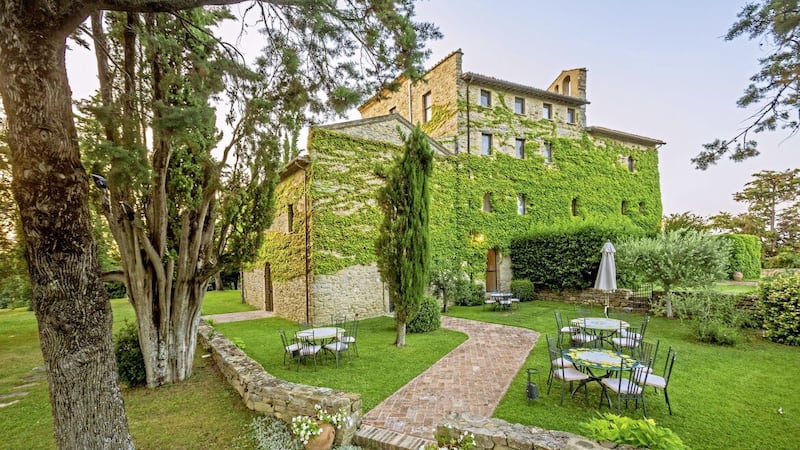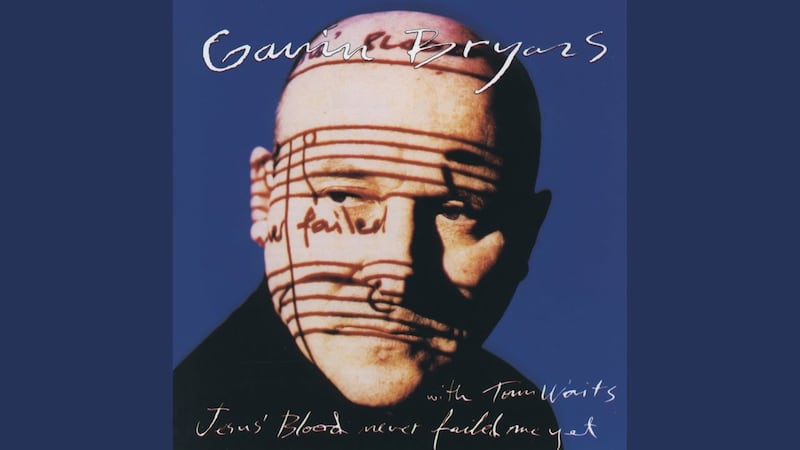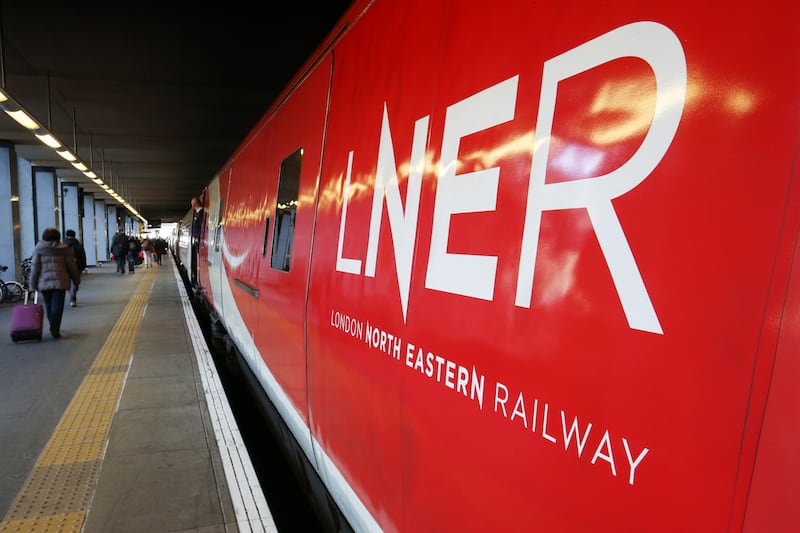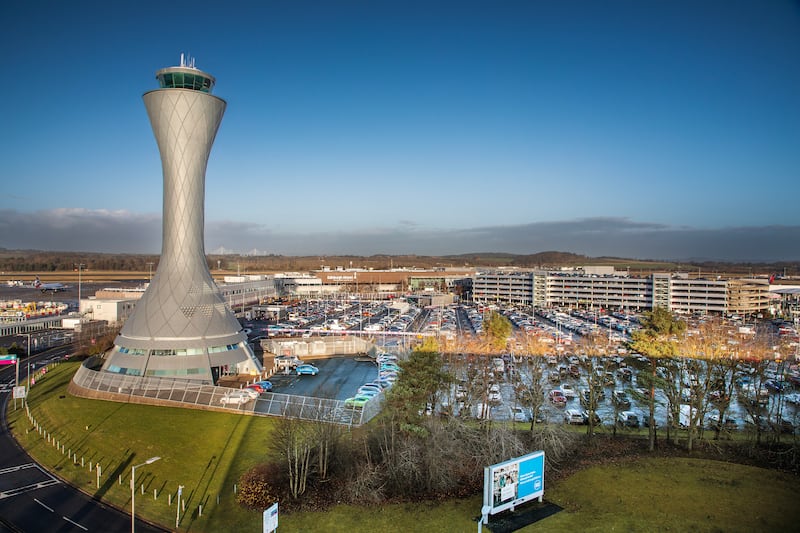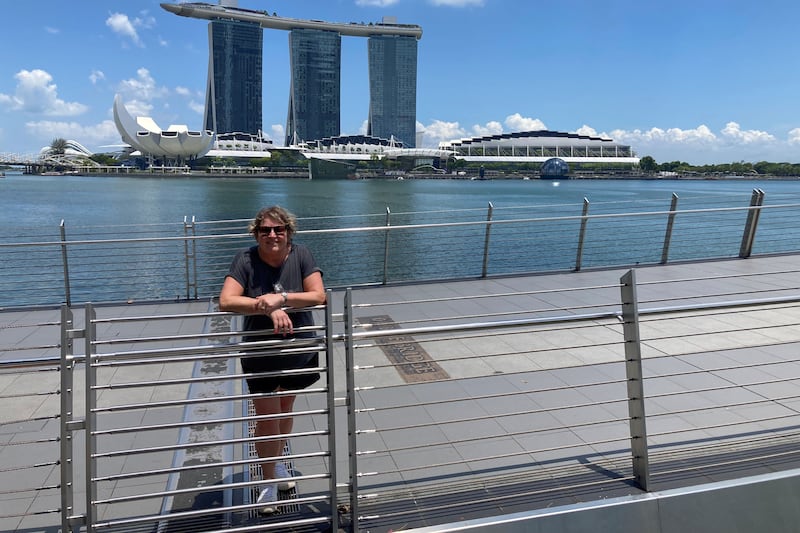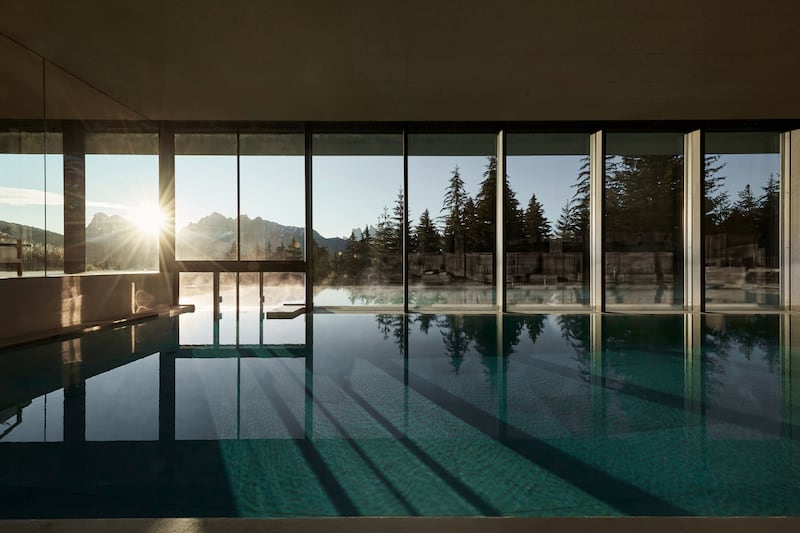I’M STOOD in the middle of a rustic, old, Italian kitchen, feeling like a total failure. Mara – a nonna who is teaching me how to cook Italian food – is shaking her head and wafting my disc of freshly-made pasta at me, tutting and muttering in her native language. She doesn’t speak a word of English, but Beatrice, who is translating for me, reveals I’ve used too much flour. My pasta is too hard and no longer any use for ravioli – it is only good enough for tagliatelle. The shame is real.
Thankfully, slurping some delicious red wine and licking the spoon from the-best-tiramisu-I-have-ever-tasted-in-my-life soon takes the edge off.
Mara and her co-chefs, Edoardo and Emma, arrive in our three-bedroom cottage in Borgo Bastia Creti, a small, 14th century resort in Umbria – right in the middle of Italy and close to the Tuscan border.
I listen to the crackle of logs sparking in the ginormous fireplace, as Italian chatter gathers speed and volume in the kitchen. Together, we make ricotta and spinach ravioli in a sage, butter and olive oil sauce, tagliatelle in a buttery tomato sauce (“the butter makes it better,” Emma says), and proper Italian tiramisu, made with six simple ingredients, no cream, and is all about the eggs and lots of whisking – an ingredient often missed out of recipes entirely at home.
After a couple of hours of hard work (making pasta is much more difficult than I thought it would be), we sit down to our feast, supplemented with wine and an additional starter of antipasto, because two courses of pasta and a large, rich dessert apparently isn’t enough. Well, we are in Italy.
Organising activities and things to do on site is something they specialise in at this family-run hamlet. Now owned by 30-something twins, Roberto and Veruschka Wirth, who also own Rome’s five star luxury hotel, Hassler Roma, this used to be the home of their grandma. If pasta making isn’t your thing (€75/£65pp), they can organise dinners (€45/£40pp), yoga €40/£35pp), massage (€90/£78pp), learning Italian (€50/£43pp per hour), wine tasting €50/£43pp), truffle hunting (from €50/£43pp) – pretty much anything you fancy. There are tennis courts, a pool, and boule available, too.
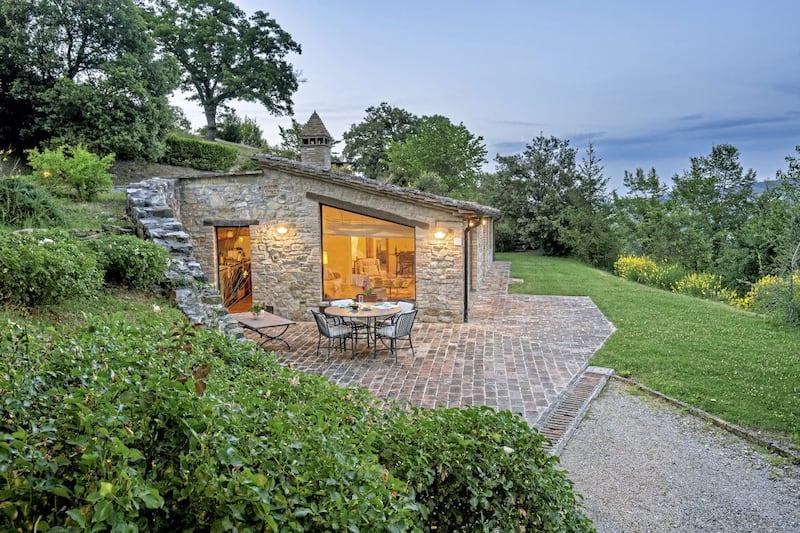
The resort has a total of 13 bedrooms, so it never feels too busy. Shortly after our visit, the whole hotel is being hired by couples from Oslo, who have booked dinner and wine tasting in the 12th century chapel, complete with a traditional accordion player.
A hour’s drive from the airport, past lush vineyards, pretty shuttered stone buildings and undulating green hills, fields come to life filled with thousands of wild red poppies. This part of Italy feels so authentic – rustic, real and undiscovered, although it’s certainly starting to garner interest.
According to Roberto, Antognolla has one of the most beautiful golf courses in Italy and is just over half an hour away. Costello is a 15-minute drive, known for its historic landmarks and beautiful churches, and swanky hotel brand Six Senses are opening up nearby, too.
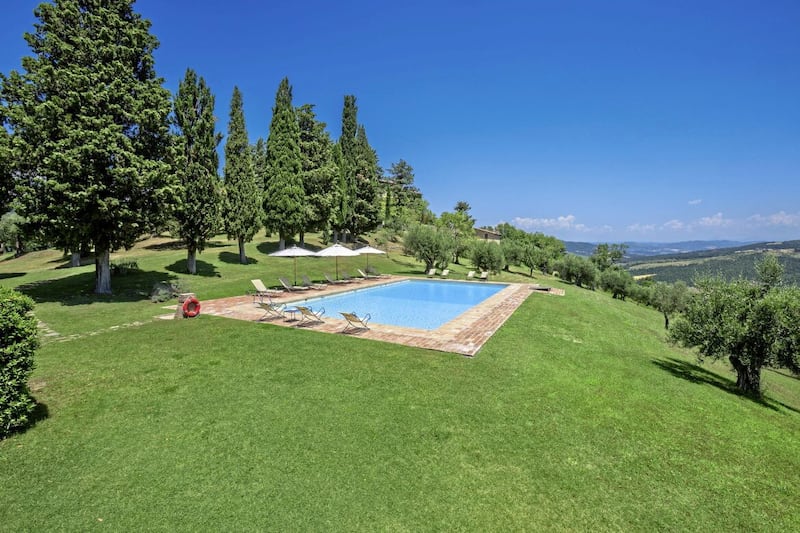
Puffs of white cloud hang low in the Umbrian hills as we head into another nearby village, Montone. A 30-minute drive away, it’s a bit of a hidden gem. Only 1,500 people live here, yet it’s a celebrity favourite. Stanley Tucci was given the keys of the city at last year’s film festival, which takes place here every year. And after eating lunch at L’Antica Osteria di Montone, the Australian owner regales tales about Cameron Diaz’s visit last year, as well as Dan Levy and Jesse Tyler Ferguson. Rumour has it, Gwyneth Paltrow stays on the Reschio estate, about 30 minutes away, too.
“Italy is full of places that are still undiscovered,” says Roberto, “and people are looking for quieter, more authentic places now.”
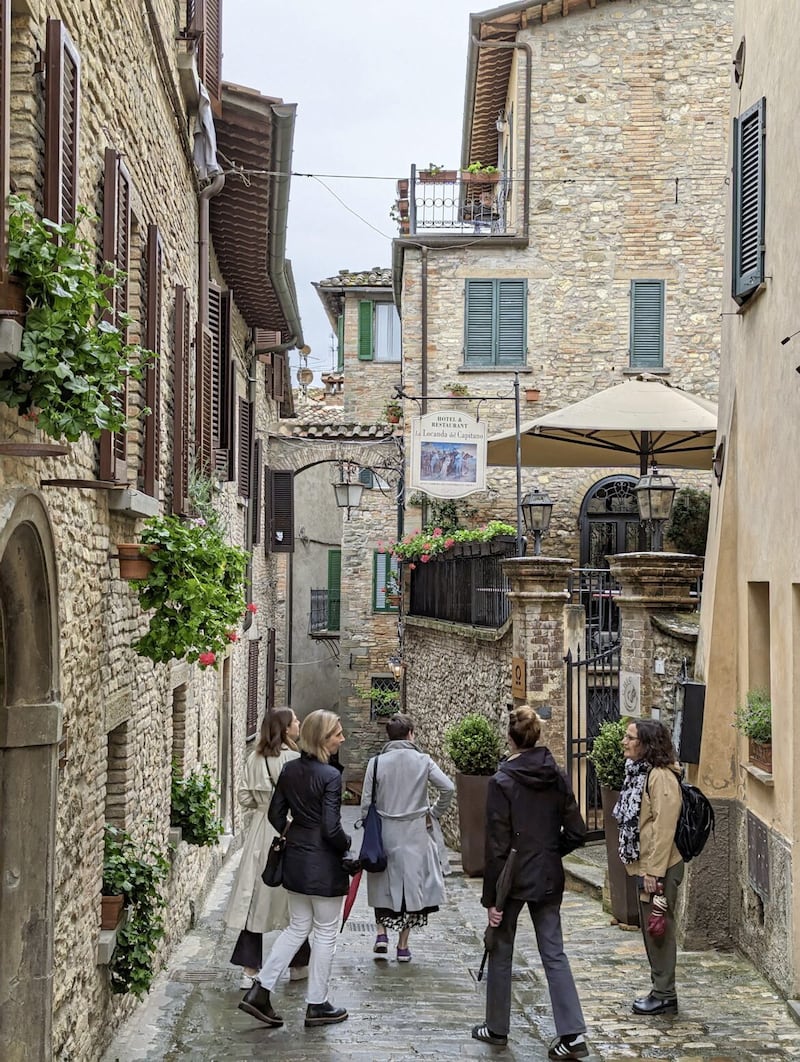
Hilly, winding lanes lead us down past sand and limestone buildings, ivy clad walls and curved, weathered terracotta roofs. Pink and red geraniums hang from window boxes and wisteria weaves its way around pretty pergolas. The churches in Montone are insanely beautiful, as is the food.
We tuck into a local speciality of brasato di chianina (braised beef, €17/£15) and a salted caramel semifredo (€6/£5), and there are lots of other picture-postcard eateries here, too. La Locanda del Capitano doesn’t have a Michelin star, but it is included in the guide with a Bib Gourmand recognition. And there are lots of varieties of truffle here – over 40, in fact. The best is apparently white truffle, served in local dishes, and in season from September to December, so autumn is a great time for foodies to visit.
Back at the Borgi, white candles wobble in the silver candelabra as we sit chatting with the expressive Italian staff. The food here is ‘mama style’ – scrambled eggs at breakfast, chickpea and pasta stew at dinner and grilled vegetable salads at lunch. Fine dining it is not, but comforting, fresh and Italian it most certainly is. “We are simple, but authentic,” says site manager, Sonia.
My room is spacious, filled with a huge bed, old wooden furniture and handmade floor tiles, containing swirls from the trowels which made them, plus the odd finger smudge and paw print, laid with a couple of mismatching rugs. Ancient double wooden doors with giant iron hinges lead into my en-suite where my enormous wardrobe sits looking over double basins and a ceramic bath sunk into a tiled surround, with hand-painted hexagonal tiles depicting fish, trees, birds and people. It’s not remotely fancy, but it’s wonderful.
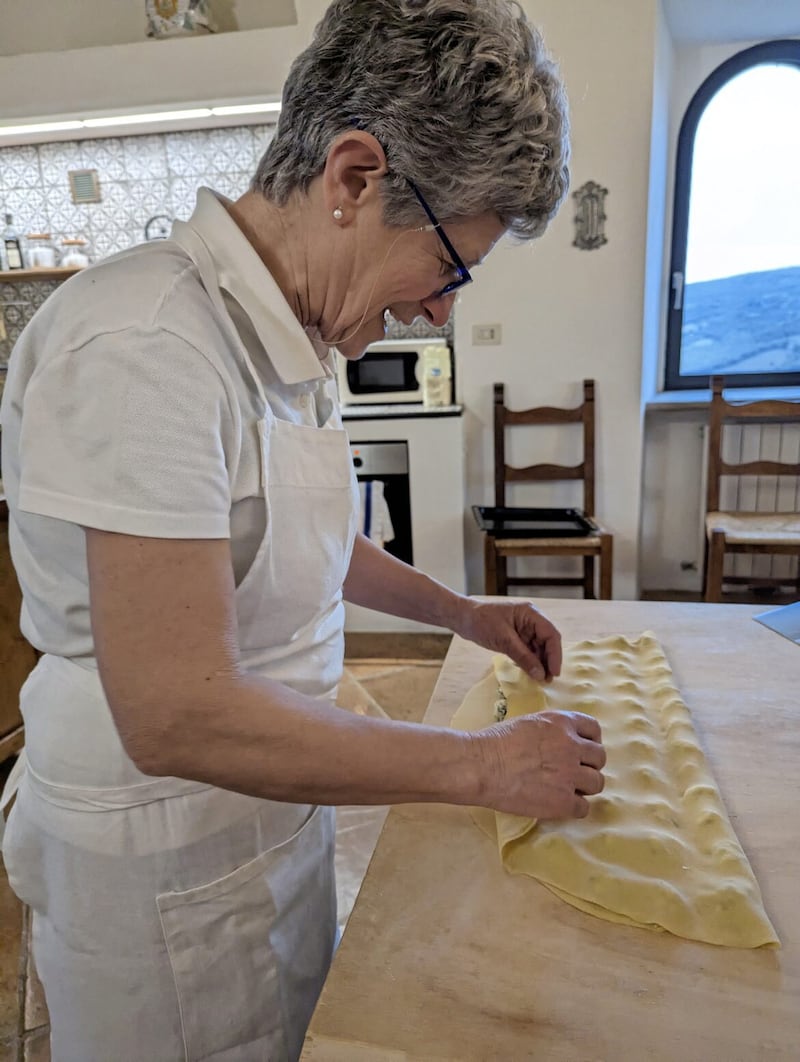
The lounge area of our cottage continues the theme, with chunky furniture placed around a couple of understated red sofas. Ornate detailing sings from every corner – in the beautiful wooden arms of the chairs that flank the fireplace, in the painted shapes of the lamp bases – each one chipped and worn, and the gold painted plaque above the stone mantlepiece. All the ceilings are beamed wooden slats and in the kitchen sits an enormous wooden table seating up to 12 people. Arched windows look out on to the Umbrian hills like paintings, and worktops and walls are adorned with battered monochrome tiles.
The views here are phenomenal, and the gardens are filled with cypress trees, pomegranates and aromatic bushes. From the panoramic pool, I can see tiny droplets of morning dew on the grass. The light is reflecting in the rippling water and the only sounds I can hear are a chattering magpie, a determined cuckoo, chirping birdsong and the nearby cattle lowing. It feels remarkably peaceful, as I watch the mist rise from the surface, my body shocked and shivering from the early morning temperature.
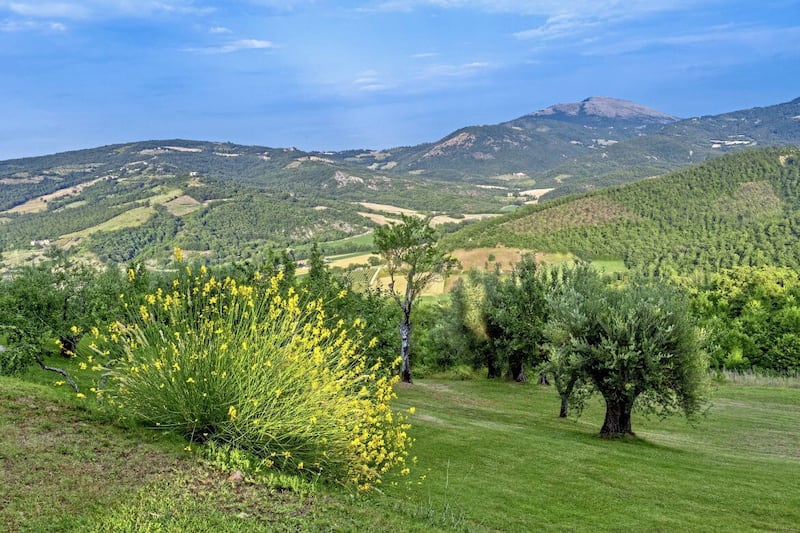
It’s unseasonably cold and rainy in Italy this May, but no matter. Instead of lounging on a sun bed and soaking up some rays, I’m getting my vitamin D alongside some cold water therapy at the pool today, and I can’t think of anywhere more beautiful to do it. Olive trees stoop over to watch my springtime madness, all old, gnarly and knowing, their leaves shimmying in the morning breeze.
Afterwards, the local church bells chime and it’s time to head home. I attempt to focus my mind on the elegantly tall pines and mountainous hills around me, but the leftover tiramisu is calling my name from the fridge. Maybe there’s time for one last feast before I go.
HOW TO PLAN YOUR TRIP
Borgo Bastia Creti (bastiacreti.it) offers rooms from €280/£243 per night or €1,400/£1,215 per week, based on two adults sharing, excluding breakfast.
